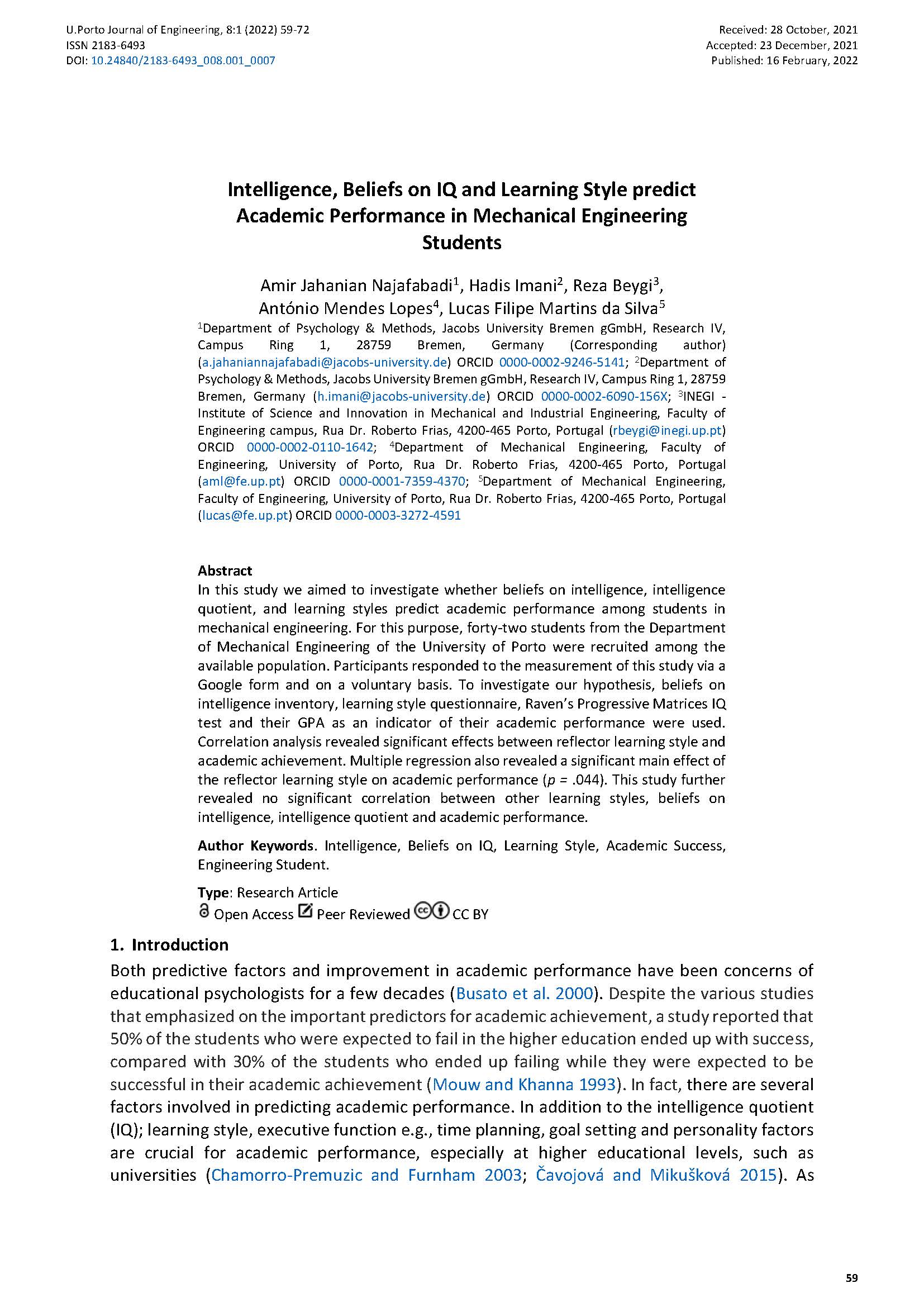Intelligence, Beliefs on IQ and Learning Style predict Academic Performance in Mechanical Engineering Students
Main Article Content
Abstract
In this study we aimed to investigate whether beliefs on intelligence, intelligence quotient, and learning styles predict academic performance among students in mechanical engineering. For this purpose, forty-two students from the Department of Mechanical Engineering of the University of Porto were recruited among the available population. Participants responded to the measurement of this study via a Google form and on a voluntary basis. To investigate our hypothesis, beliefs on intelligence inventory, learning style questionnaire, Raven’s Progressive Matrices IQ test and their GPA as an indicator of their academic performance were used. Correlation analysis revealed significant effects between reflector learning style and academic achievement. Multiple regression also revealed a significant main effect of the reflector learning style on academic performance (p = .044). This study further revealed no significant correlation between other learning styles, beliefs on intelligence, intelligence quotient and academic performance.
Downloads
Article Details

This work is licensed under a Creative Commons Attribution 4.0 International License.
Authors who publish with this journal agree to the following terms:
- Authors retain copyright and grant the journal right of first publication with the work simultaneously licensed under a Creative Commons Attribution License that allows others to share the work with an acknowledgement of the work's authorship and initial publication in this journal.
- Authors grant the journal the rights to provide the article in all forms and media so the article can be used on the latest technology even after publication and ensure its long-term preservation.
- Authors are able to enter into separate, additional contractual arrangements for the non-exclusive distribution of the journal's published version of the work (e.g., post it to an institutional repository or publish it in a book), with an acknowledgement of its initial publication in this journal.
- Authors are permitted and encouraged to post their work online (e.g., in institutional repositories or on their website) prior to and during the submission process, as it can lead to productive exchanges, as well as earlier and greater citation of published work (See The Effect of Open Access).

